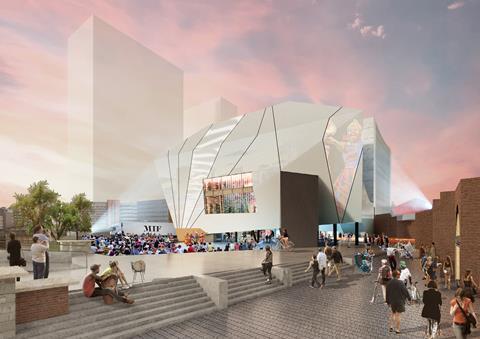Factory scheme in Manchester now set to open next summer
The cost of materials and labour shortages as well as the ongoing impact of the covid-19 pandemic are being blamed for the latest price hike at the Factory arts scheme being built in Manchester by Laing O’Rourke.
In an update this week by project client the city council, the job is now expected to cost £210.8m – up from an original budget of £110m.
The job has been hit with a series of price increases in the past three years with a jump of £45m in October 2020 bringing the cost to a then £186m – a rise of close to 70%.

The covid-19 pandemic was blamed for that hike but the complexity of the scheme, the design of which had to be rejigged by project architect OMA, the high-profile Dutch practice headed up by Rem Koolhaas, before it was OK’d for planning, has also previously been cited.
In this month’s update, the council said spiralling materials costs, labour shortages and the impact on productivity of restrictions caused by the pandemic meant the budget had gone up a further 14%.
It said “challenges of design co-ordination on the steel structure” had also contributed to the latest hike while additional work was required on the M&E package especially around the building’s acoustics.
The report added the impact of chancellor Kwasi Kwarteng’s mini-budget could also send costs further north.
The building is due to be “substantially” completed by O’Rourke, which is management contractor on the job, next January, rather than its December 2022 deadline, with seating installed next March ahead of it opening next June. It was originally due to finish last year although when plans were first announced seven years ago, a 2019 opening date had been proposed.
In November 2020, ∫⁄∂¥…Á«¯ revealed that former Shard developer Flan McNamara had been drafted in to help get the late-running scheme over the line.
His arrival at the time was one of a series of changes made with Turner & Townsend replacing Gardiner & Theobald as QS while Newcastle firm Ryder was brought in as executive architect, with the job previously operating without one.



























No comments yet